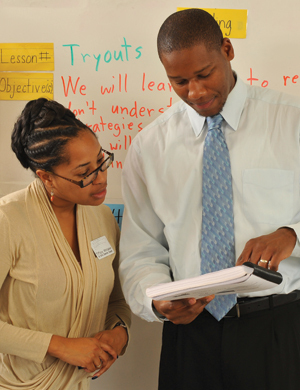In a February 2012 op-ed in Education Week, Don Peurach wrote about a 14-year investigation he carried out as part of a large University of Michigan study of comprehensive school reform. In the overall study, our Success for All program and the America's Choice program did very well in terms of both implementation and outcomes, while an approach in which teachers largely made up their own instructional approaches did not bring about much change in teachers' behaviors or student learning. Because both Success for All and America's Choice have well-specified training, teacher's manuals, and student materials, the findings support the idea that it is important for school-wide reform models to have a well-structured approach.
Peurach's focus was on Success for All as an organization. He wanted to know how our network of hundreds of schools in 40 states contributes to the development of the approach and to each other's success. His key finding was that Success for All is not a top-down approach, but is constantly learning from its teachers and principals and then spreading good practices throughout the network.
In our way of thinking, this is the very essence of professionalism. A teacher who does wonderful, innovative things in one class is perhaps benefiting 25 children each year, but one whose ideas scale up to inform the practices of hundreds of thousands of schools is making a real difference. Yet in order for teachers' ideas and impact to be broadly impactful, it helps a great deal for the teachers to be part of a national or regional network that speaks a common language and has common standards of practice.
Teachers need not be researchers to contribute to their profession. By participating in networks of like-minded educators - implementing, continuously improving and communicating about practical approaches intended to improve outcomes of proven approaches - they play an essential role in the improvement of their profession.

